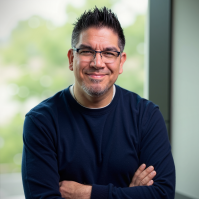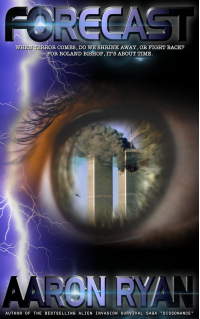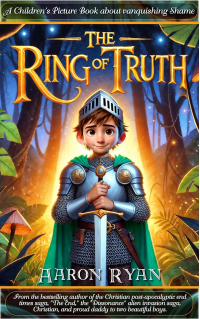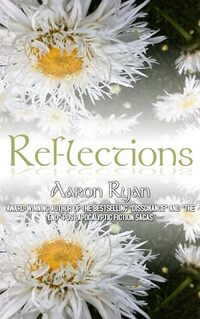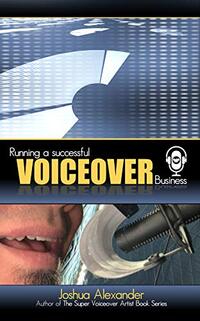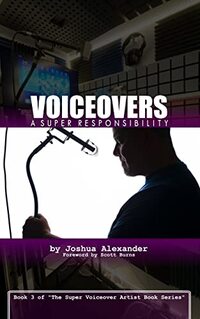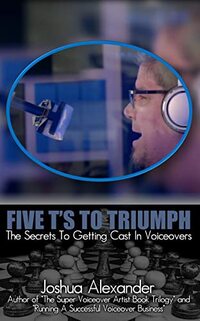Aaron Ryan Interview Published on: 25, Sep 2024
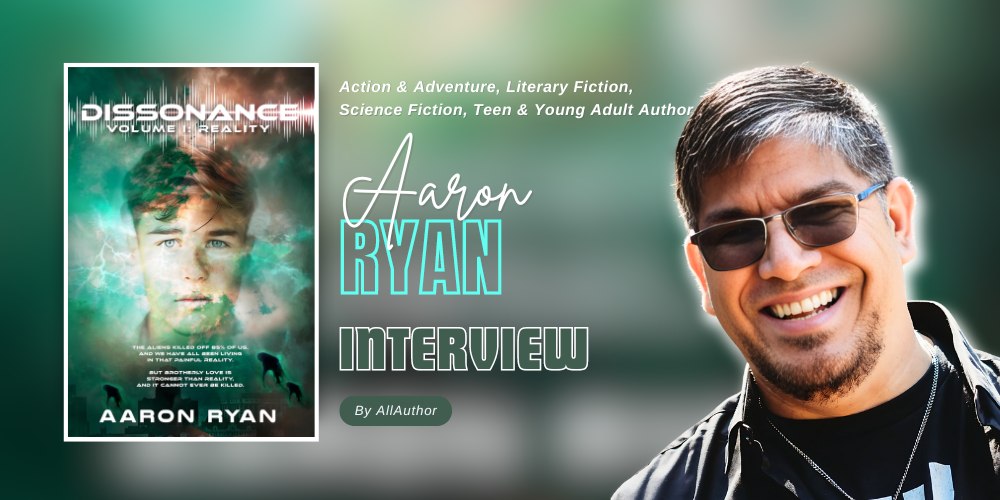 Your journey as a writer started with "The Electric Boy" in second grade. How did that early experience shape your approach to writing today?
Your journey as a writer started with "The Electric Boy" in second grade. How did that early experience shape your approach to writing today?
I think it shaped me to become so much more interested in writing, and fired up my creative juices from an early age. I’ve even begun working on a new idea which it looks like you’re addressing in a later question…I call it, jokingly, The Electric Boy 2.0. ?
You’ve written in various genres, from sci-fi thrillers to business reference books. What drives your choice of genre for a particular project?I’m set on fiction now. I have written plenty of fiction over the years, and as a voiceover artist I penned 300 blogs over four years’ time that contained a lot of satire…much of which is fictional…so that was a natural shoehorn into becoming a fiction novelist. I prefer fiction. I just for a time was a voiceover coach and business guide in the voiceover industry, and that’s what led to my writing and self-publishing six voiceover business books.
How did your background as a voiceover artist and performer influence your writing style and storytelling techniques?Again, the satire helped. The rest of it is merely formative in terms of being a performer. I have always been a storyteller; in voiceovers I get to tell others’ stories. But in authoring I get to tell my own stories, and I prefer the latter every day of the week and twice on Sunday. ?
Can you tell us about the inspiration behind the "Dissonance" quadrilogy? What themes or ideas were you exploring?Many. The series is loaded with heart and thematic depth. Justice vs. revenge. Cynicism vs. trust. Snarkiness vs. maturity. Renegade vs. obedience. Forcing vs. allowing. And ultimately, that man is always the worst enemy of man. When you realize that, the aliens in my stories become little more than a nuisance. We are always our own worst enemies, and it takes cooperation, surrendering of pride, and willingness to work together with each other, despite rank, background, beliefs, pride, etc., to get things done. Overall, I just really desired to tell a compelling story of adventure, terror, horror, loss, and victory.
"Forecast" is a sci-fi thriller. What unique challenges did you face while writing this book, and how did you overcome them?I’m not done with Forecast yet…every time I try to dive back into it, I get bungee-sucked right back into the world of Dissonance once more. I tried after Volume III, and get sucked back into writing Revelation. Then I tried again, and got sucked back in writing Rising. Then I tried once more and now I’m writing Relentless. It’s just something about the Letter R, I guess! ? Seriously though, with Forecast – once I get back to it – it’s going to take some diving back in time and remembering what the world of 2001 was like prior to 9/11. So much has changed. I have to unlearn what I have learned, to quote Yoda.
In your business books, you offer advice on self-publishing and voiceovers. What common mistakes do you see self-published authors make, and how can they avoid them?Boy, there are so many. They don’t charge enough. They give their books away for free. They try to copy. They use AI. They don’t treat authoring like a business. They don’t have a mantra. They don’t operate by goals. They get stuck in imposter syndrome. Ultimately, this is a journey that requires a huge mindset shift if you want to be successful. I’m loving every minute of it, evn whe the sales are down for whatever reason, or I’m in between book signing gigs. It’s an amazing experience, it really is. Treat it as such…always.
You’ve written under different names, including Joshua Alexander. How did adopting a different persona affect your writing and professional journey?I used a stage name in voiceovers, so that’s why I published those books under that name. It would have been highly confusing had I done otherwise. And I was ultimately only going under a pseudonym because my wife and I are the victims of a cyberstalker. That issue has been put to rest, so I felt safe using my own name again. Frankly, though, I’m very glad to be out from under the weight of that moniker. It was so confusing and difficult to maintain showing up at voiceover conventions and having to remember to refer to myself as a different name. Ick.
You mentioned J.R.R. Tolkien as a favorite author. How has Tolkien’s work influenced your own writing?Well, if one reads my series, they’ll note phrases that are a tip of the hat or an otherwise nod to something they may have read in Tolkien’s work. Granted, I’m not trying to imitate him, but there are phraseologies that come out when I write that are vaguely reminiscent of how Tolkien would form his narrative, and I love that they do. It was the first creative work I ever partook of as a child that I remember greatly impacting me on a creative scale. It is the quintessential work of fantasy, and the undisputed heavyweight of fiction for all time, IMHO. I’ve read The Lord of the Rings in its entirety over 150 times in my lifetime at least, and I plan to continue my annual pilgrimage.
What was the inspiration behind "The Omega Room," and how does it differ from your other fictional works?Honestly, the Omega Room is something of an apparition anymore…I don’t really remember much of it except for snippets. It was an adventure story of four youths who get sucked into something too big for them, a renegade military operation or something of the kind, and I do seem to remember being influenced by Die Hard 2, the movie, at the time. Some rogue leader is branching off by himself and decides to abscond with technology not his own, for his own nefarious purposes, and the kids get caught in the crossfire. You would think I would remember more, as I had over 300 pages of it at one time, but I was a kid who didn’t know what he wanted to do with his life, and so he foolishly deleted it and moved on. I wish I could remember more. Perhaps one day I’ll try to resurrect it.
You’ve had a diverse career with roles in performing, producing, and tech support. How have these experiences enriched your storytelling?I think each one of them has been formative in creating who you see today. Each one, while having nothing to do with authoring, has encouraged me to treat my pursuits as a vocation. To take them seriously and give them my all while I’m embroiled in them. I don’t do anything halfway. I’ve always wanted to give my all. I have a wide variety of experience in terms of the things that I’ve done and the creative pursuits I’ve followed after, and I think that’s made me very well-rounded in terms of my ability to treat an art as an enterprise. To not focus on making coffee bucks, but rather on generating business revenue from my craft. No shame in that whatsoever: what one of us wouldn’t give absolutely everything to be performing our art full time and having it available on a widespread scale? I certainly would.
How do you balance your creative pursuits with your responsibilities as a husband and father?My 8 and 5 year old sons are my life. My wife is my life. When I’m off work, and I walk back in the house and have the ability to talk with them about their day, to play with them and laugh with them, to go places with them, to learn what’s going on in their brains, oh my gosh that’s fulfilling. My greatest role is daddy beyond author, beyond voiceover artist, beyond businessman. It’s daddy. I have to draw the line and make work start at 9am and end at 5pm each day, treating it like a business, because my family comes first.
What was the most challenging aspect of writing "The Superhero Anomaly," and what did you learn from the process?The Superhero Anomaly is a smorgasbord of a lot of different writings I’ve done over the years both in book and blog form. Much of the material was already written and available in my other voiceover works, particularly the Super Voiceover Artist trilogy, and Running a Successful Voiceover Business. I just wanted to capture a lot of what I do as an author, as a voiceover artist and as a businessman, and provide insights into how someone can maintain balance, treat it like a business, grow, learn, develop, improve, and all the while maintain sanity. Call it a “best-of” collection of my business books and blogs, it’s a compendium of a lot of insight I’ve gleaned over the years into how to really become that anomaly, that superhero, that rises above and succeeds where others fail.
Your books cover a range of topics. What drives your passion for storytelling across such diverse fields?Well, again, I’m primarily motivated to be a fiction novelist, so that’s where my heart lies. I don’t think I’ll be writing any more business books, unless I’m sorely mistaken. My heart really truly lies with Dissonance, with Forecast, with other ideas that I’ve conjured up, and I think my business guidance days are behind me. I’ve greatly enjoyed them, but I’m much more focused on the creative pursuits now that I have my business running exactly how I want it to and I’m able to maintain all the business that I do. Overall however, I just want to tell a good story. I’ve always been a storyteller, and I love telling good stories: mine or otherwise.
Looking ahead, do you have any upcoming projects or new directions you’re excited about?Ha! Well, I simply MUST get back to Forecast one of these days, if the Dissonance universe will let me. But I do have some other ideas percolating, and I like to play my cards close to the chest as far as what those ideas are, but they’ll be along. I expect next year will be a huge pivot away from the Dissonance universe, at least as far as the books go – unless the Dissonance Volume I: Reality screenplay is picked up and things are progressing mightily on that front! – and I’ll be exploring other worlds.
Are you satisfied with the AllAuthor experience thus far? Is there anything about the site you particularly like or dislike?I think it’s fine! I confess I’m not on there as much as I should be, but I do appreciate the opportunities to let my books shine there and in so many other places. I really do. Anytime someone picks up my books from any site, or hears about them from any site such as AllAuthor, I’m so immeasurably grateful and filled with thanks, resounding that for any and all around me to hear. I don’t take it lightly. I’m so grateful to be an author and to be able to tell stories that people become interested in.
Share Aaron Ryan's interview
Aaron Ryan lives in Washington with his wife, two sons, and a lively crew of pets: Macy the dog, Winston the cat, and Merry & Pippin the finches. He is the bestselling author of the "Dissonance" sci-fi alien invasion saga, the sci-fi thriller "Forecast," and several business reference books. His rich life experiences - spanning roles as an author, voiceover artist, wedding videographer, musician, and more - inform his unique perspective on business, life, and creativity.
 Aaron Ryan Presents "A Lyrical Empirical Satirical Miracle": (Otherwise Known As "The Book You Don't Need By The Author You Don't Know")
Aaron Ryan Presents "A Lyrical Empirical Satirical Miracle": (Otherwise Known As "The Book You Don't Need By The Author You Don't Know")
 Dissonance: Volume I: Reality
Genre: Thriller, Suspense, Action & Adventure, Science Fiction, Teen & Young Adult
Dissonance: Volume I: Reality
Genre: Thriller, Suspense, Action & Adventure, Science Fiction, Teen & Young Adult
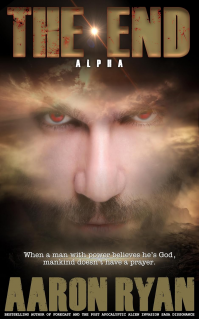 THE END: Alpha (THE END: A Christian Post-Apocalyptic Dystopian End-Times Saga Book 1)
Genre: Teen & Young Adult
THE END: Alpha (THE END: A Christian Post-Apocalyptic Dystopian End-Times Saga Book 1)
Genre: Teen & Young Adult
 Dissonance: Volume II: Reckoning
Genre: Thriller, Action & Adventure, Science Fiction, Teen & Young Adult
Dissonance: Volume II: Reckoning
Genre: Thriller, Action & Adventure, Science Fiction, Teen & Young Adult
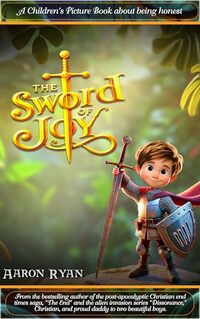 The Sword of Joy: A Children's Picture Book about being honest (The Christian Kids Values, Identity & Affirmation Series 2)
Genre: Fantasy, Children's, Christian Nonfiction
The Sword of Joy: A Children's Picture Book about being honest (The Christian Kids Values, Identity & Affirmation Series 2)
Genre: Fantasy, Children's, Christian Nonfiction
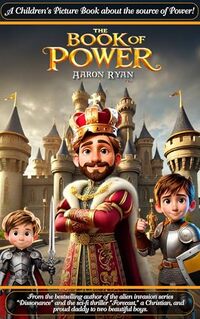 The Book of Power: A Children's Picture Book About The Source Of Power! (The Christian Kids Values, Identity & Affirmation Series 3)
Genre: Fantasy, Children's, Christian Nonfiction
The Book of Power: A Children's Picture Book About The Source Of Power! (The Christian Kids Values, Identity & Affirmation Series 3)
Genre: Fantasy, Children's, Christian Nonfiction
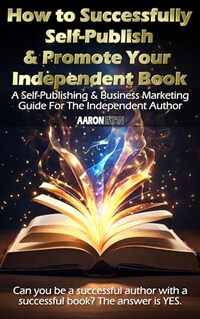 How to Successfully Self-Publish & Promote Your Independent Book: A Self-Publishing & Business Marketing Guide For The Independent Author
How to Successfully Self-Publish & Promote Your Independent Book: A Self-Publishing & Business Marketing Guide For The Independent Author
 The Superhero Anomaly: A Comical Look At Balancing Life & Business: Business Improvement & Life Self-Help
Genre: Business
The Superhero Anomaly: A Comical Look At Balancing Life & Business: Business Improvement & Life Self-Help
Genre: Business
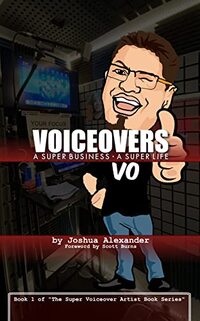 Voiceovers: A Super Business ? A Super Life: The cozy stressful beautiful harried awesome funny magically super life of a mild-mannered Voiceover Businessman ... (The Super Voiceover Artist Book Series 1)
Voiceovers: A Super Business ? A Super Life: The cozy stressful beautiful harried awesome funny magically super life of a mild-mannered Voiceover Businessman ... (The Super Voiceover Artist Book Series 1)
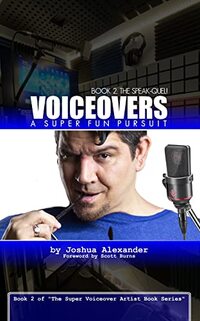 Voiceovers: A Super Fun Pursuit: More True Stories of Life As Seen Through The Eyes of Just Some Random Voiceover Guy (The Super Voiceover Artist Book Series 2)
Voiceovers: A Super Fun Pursuit: More True Stories of Life As Seen Through The Eyes of Just Some Random Voiceover Guy (The Super Voiceover Artist Book Series 2)
